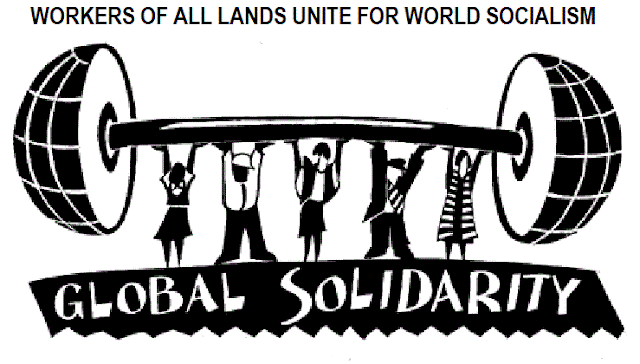The ruling class controls the formation and promotion of ideas, owning the media and being in charge of education and political institutions. As Marx put it: ‘the ruling ideas of any age will be the ideas of the ruling class’. The generally-held ideas of society reflect the way society is organised.
If socialism cannot be created on behalf of workers as we hold and must be the act of the working class itself, how can this happen when the working class is so dominated by capitalist ideas? We accept that our fellow worker's ideas clearly cannot simply be changed on a mass scale by any campaign by the Socialist Party. The socialist intellectual may be a miner or factory workers or an academic university professor. The socialist intellectual must keep his or her eye on the main task, the formation and circulation of revolutionary ideas.
It is often assumed that the more people suffer, the more revolutionary their resistance grows. But if this were so, then the revolution would have happened long ago. In fact, it is not suffering, but the experience and lessons of struggling against exploitation and oppression that is the basis for the growth of socialist ideas.
the
The central tenet of socialism is the assertion that the working class is the sole historical agency for the achievement of socialism, and that it is upon its conscious practice that the possibility of revolution depends. For the Socialist Party, the possibility of revolution rests upon the conscious and free acceptance of socialism by the working class. If workers’ struggle results largely in defeat, then workers – with little control over their own working lives – feel that society cannot be changed. But if victory follows victory, then workers’ confidence in their ability to change their own lives increases, and they become more able to see that alternatives to capitalism are possible and then socialist ideas can spread like wildfire. The Socialist Party seeks liberty, equality, and fraternity for workers’ all human beings, regardless of race, religion or origin.
None of this means that the attempt by the Socialist Party to spread our ideas is not necessary. Socialist ideas have to be present to be picked up, and an organisation is required to inform, articulate and generalise from these worker’s experiences to prove their relevance and point the way forward. A working-class not guided by socialist theory can play into the hands of its class enemies. If workers do not believe the emancipation of the working class is the act of the working class, then they will look for salvation from above, or, worse still, come to the conclusion that no emancipation is possible at all. The struggles of those who see beyond the limitations of reformism are bound to be difficult. But the development of capitalism, with its inexorable laws, provided the foundation upon which the ideas of socialism must survive, no matter how weakly or what the setbacks. People want to develop a political consciousness, a sense of fellowship, and a satisfaction of human and cultural needs, within the present society and within a radical social movement that is possible.



No comments:
Post a Comment